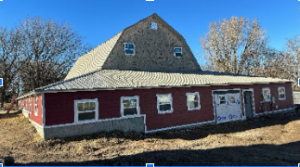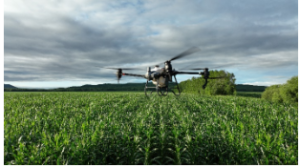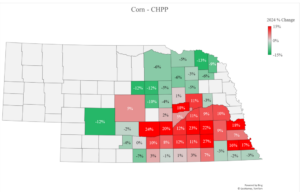Reposted with permission from our partner Sentinel Fertigation
Sentinel Fertigation was founded to scale fertigation management technology developed at the University of Nebraska – Lincoln for the ultimate benefit of farm operations that fertigate. This blog post introduces Sentinel Fertigation through the origin of our name and is the first blog post in a series of blogs that will be released weekly throughout Winter 2022.
THE MEANING OF SENTINEL
The Oxford Advanced American Dictionary defines the word sentinel as “a soldier whose job is to guard something.” A quick Google search for “sentinel definition” reveals that the word sentinel is also used in medicine to mean “a thing that acts as an indicator of the presence of disease.” The word sentinel has also been used to describe species of animals or plants that provide early warnings of imminent threats to the health and safety of humans and the environment they inhabit. These species are called sentinel species. One of the most popular examples of a sentinel species is the domestic canary which coal miners carried into mine shafts in cages to serve as an early warning of the presence of deadly carbon monoxide gas. From these definitions and uses, it’s clear that sentinel means a guardian, an identifier of specific threats, and an early warning system that enables proactive measures against potential hazards.

MAINTAINING NITROGEN SUFFICIENCY
If we think about the sentinel concept in terms of crop production, what are the threats that your crops face and that you’d like an early warning of? I’d be willing to wager that nitrogen deficiency is somewhere on that list. Managing nitrogen fertilizer to supply sufficient nitrogen to the crop is challenging due factors including unanticipated weather conditions, uncertain nitrogen availability from mineralization, and variation in crop nitrogen need if health is impacted by other stressors. One solution to making sure crops are never short of the nitrogen they need is applying more than is known to be necessary. However, this strategy doesn’t promise the most profitable outcomes for farm operations and poses a risk to the environment, particularly water resources. In an ideal world, nitrogen fertilizer would be applied in small doses in advance of known upcoming crop nitrogen need to maximize profitability potential and minimize environmental risk.
ENHANCING FERTIGATION
This ideal strategy simply isn’t currently feasible from an operational standpoint for rainfed farm operations due to application technology broadly available to farmers. However, fertigation – fertilizer application through irrigation – gives irrigated farm operations the opportunity to make multiple applications of nitrogen fertilizer throughout the growing season in pursuit of ideal nitrogen management. When it comes to fertigation applications, though, how can one reliably determine if and when the crop needs nitrogen? Research from the University of Nebraska – Lincoln has shown that imagery of the crop canopy captured frequently throughout the growing season can be used to predictively inform fertigation timing recommendations and enable proactive applications. Sentinel Fertigation is scaling this technology through its N-Time Fertigation Management System (N-Time FMS) platform to make its benefits accessible to fertigating farm operations.
OUTLOOK
Sentinel Fertigation seeks to be exactly what its name suggests: a guardian for crops, constantly monitoring crop nitrogen status, and identifying imminent threats to crop nitrogen sufficiency allowing proactive fertigation applications that ensure nitrogen stress never occurs. This weekly series of blog posts through the winter of 2022 will explore the challenges of nitrogen management, technology use in improving nitrogen management, and how Sentinel’s technology works to help solve nitrogen management challenges. I hope that this content will be valuable to you and that it provokes thought and discussion about the future of nitrogen management.
Want to learn more about this new method for managing nitrogen? Give us a call at 402-843-5342.





